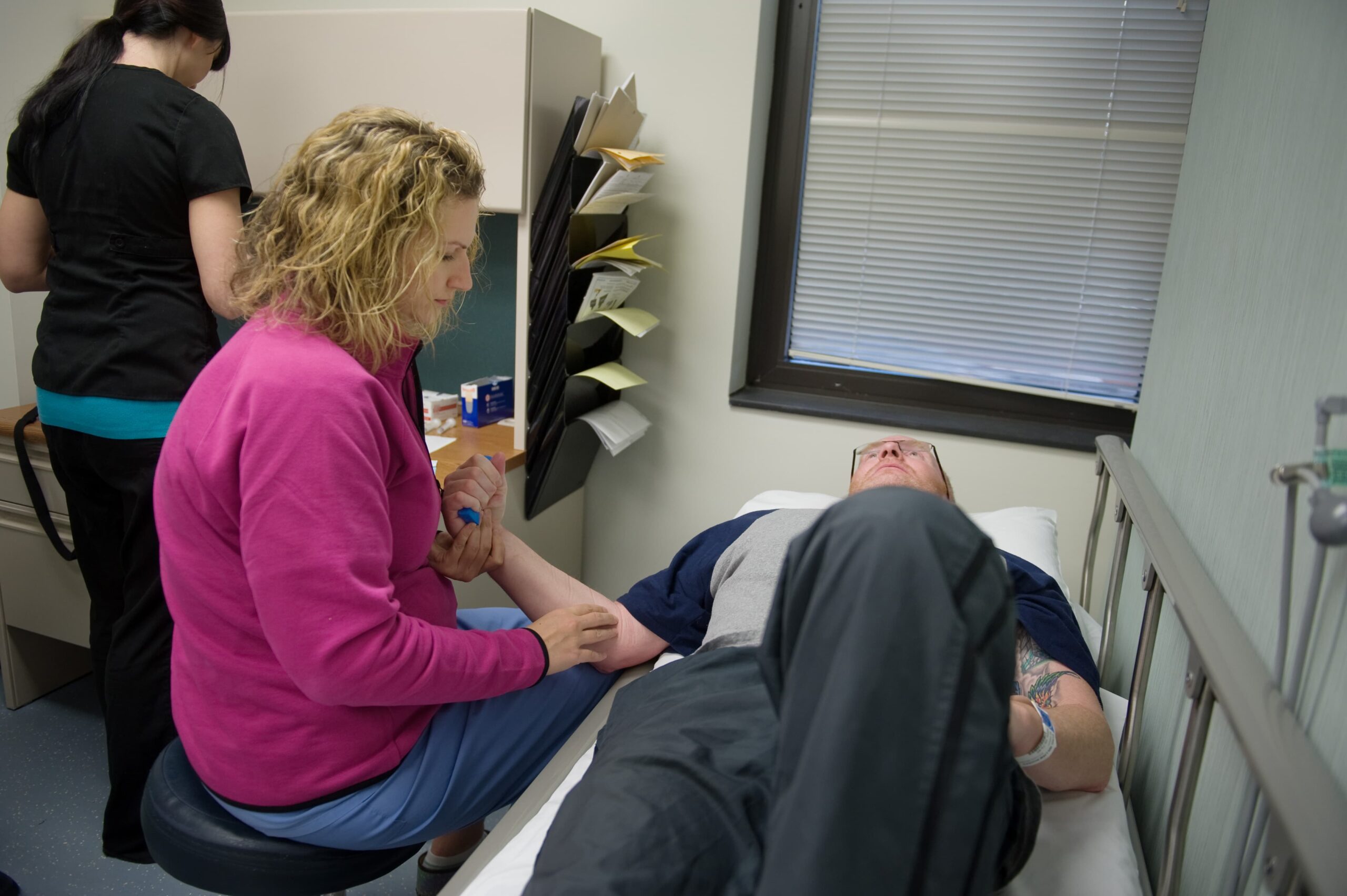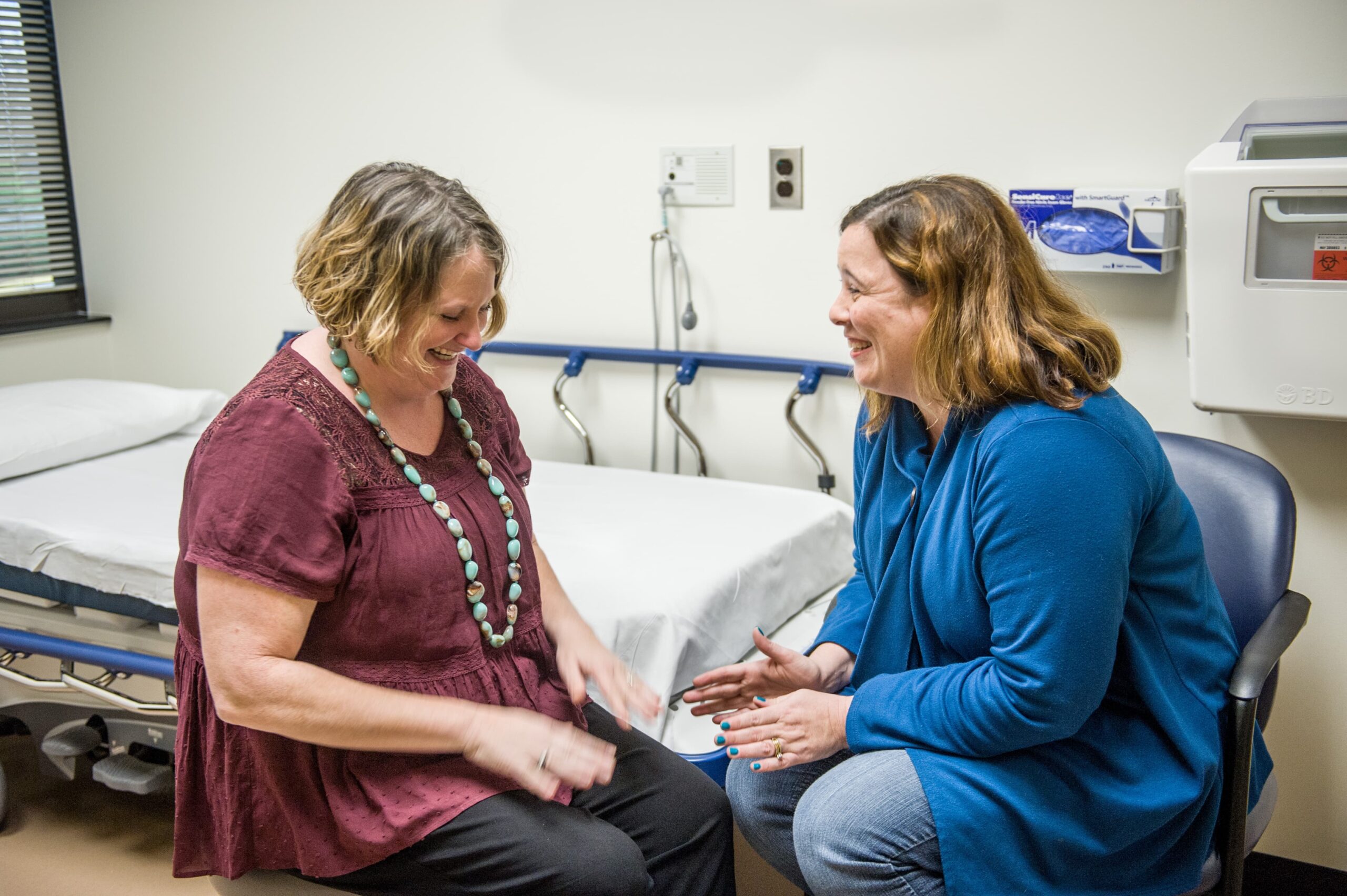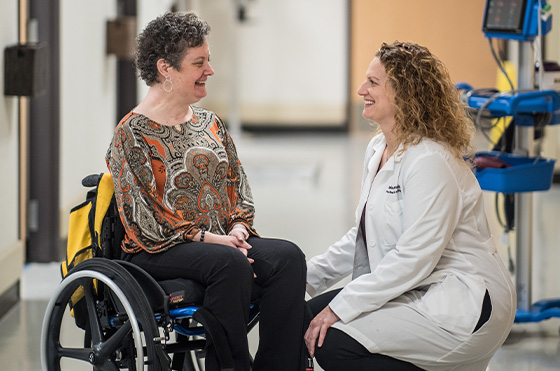Comprehensive care from a multi-specialty team that understands the long-term effects of involuntary muscle rigidity
Spasticity, a common condition following neurological injuries or illnesses, can significantly impact mobility, comfort, and quality of life. Effective management is essential to restoring function and enhancing independence. Shepherd Center’s Rehabilitation Medicine Clinic offers a comprehensive approach to spasticity treatment, ensuring you receive care tailored to your specific needs.


